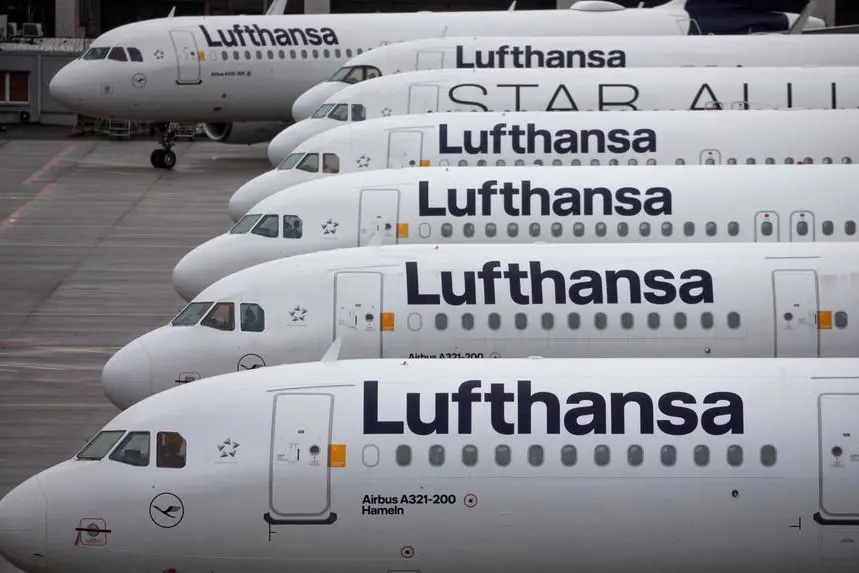PHOTO
German airline giant Lufthansa said Friday it returned to annual profit in 2022 after two years of losses, its fortunes lifted by rebounding demand as economies reopened after Covid shutdowns.
The group reported a net profit of 791 million euros ($839 million) for last year. This compares to a net loss of 2.2 billion euros in 2021 and 6.7 billion euros in 2020.
"Lufthansa is back," said the company's CEO Carsten Spohr.
"In just one year, we have achieved an unprecedented financial turnaround... the Lufthansa Group has achieved a much better result than expected. Demand for air travel remains high in 2023."
The group also reported an adjusted operating profit of 1.5 billion euros, in line with expectations.
When the coronavirus brought global air travel to a halt, Lufthansa suffered massive losses and had to be bailed out by the German government in 2020.
But as vaccines were rolled out and countries shifted to living with the virus, the airline -- one of Europe's biggest -- benefited from pent-up demand, and has bounced back faster than expected.
Lufthansa, which also includes Eurowings, Austrian, Swiss and Brussels Airlines, said 102 million passengers flew with airlines of the group in 2022 -- more than twice as many as in 2021.
The number of flights offered over the year was expanded to meet growing demand -- although Lufthansa noted there was a "short-term overload of the overall system" during the summer, leading to it and other airlines cancelling flights.
The aviation giant had repeatedly raised its outlook in recent months as the picture for the sector brightened.
And in September, the German government sold its remaining stake in Lufthansa, putting the airline back in private hands.
On Thursday Spohr, who has been at the helm of Lufthansa since 2014, had his contract extended by another five years.
- Warning of 'bottlenecks' -
Lufthansa said it expected demand for flights to remain strong in 2023, particularly in the Easter and summer holiday periods.
However it warned that ability to increase services to meet this demand would be limited by "the bottlenecks still expected in the European aviation system".
Lufthansa, like other carriers, faces the challenge of finding enough workers to cope with rising numbers of travellers, after many were let go or quit during the pandemic.
In November, the group launched a drive to hire 20,000 employees in Germany, Switzerland, Austria and Belgium, with roles ranging from pilots and flight attendants to technicians and IT specialists.
The threat of further strike action also looms large.
Last month, workers at eight German airports went on strike for better pay as surging inflation erodes incomes, prompting Lufthansa to axe more than 1,300 flights alone at its busiest hubs, Frankfurt and Munich.
And last year, the airline's pilots and other staff staged strikes due to rising inflation, as well as workforce shortages.
Lufthansa pilots have agreed to suspend strikes until the end of June under a pay deal reached last year.
But they could still stage industrial action in the key summer holiday season, and there is also a risk airport ground staff could walk out again if their demands are not met.
Despite the challenges, Lufthansa is pushing ahead with ambitious expansion plans.
In January, the group submitted a fresh offer for Italy's troubled ITA Airways, bringing a turbulent takeover process closer to the finish line.
Lufthansa's proposal would see the carrier initially take a minority stake in state-owned ITA -- the successor to the iconic but loss-making national carrier Alitalia -- with the option to later purchase the remaining shares.
The German group hopes to turn Rome into a key European travel hub, including by offering direct flights to Italy from the United States, its biggest market.





















